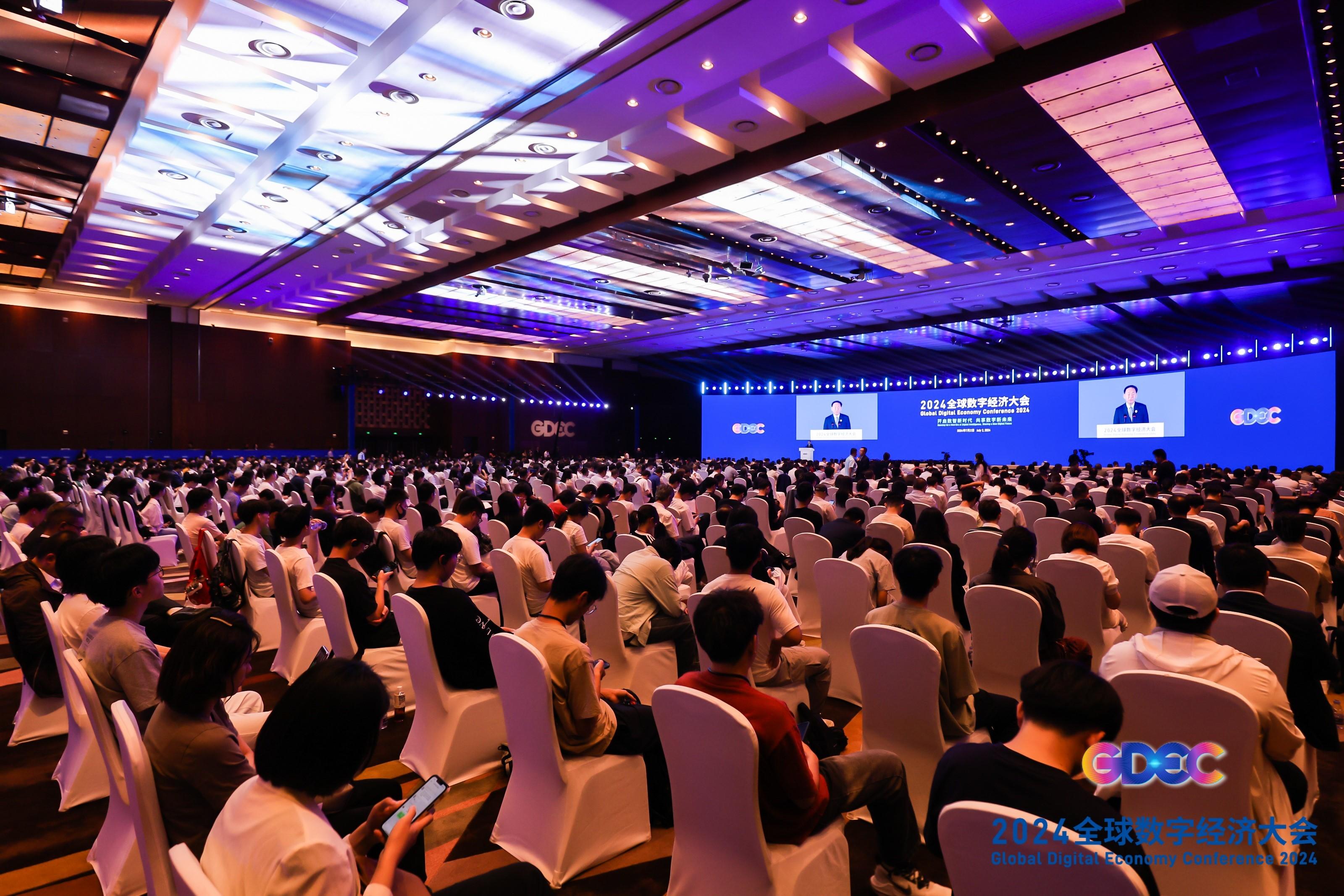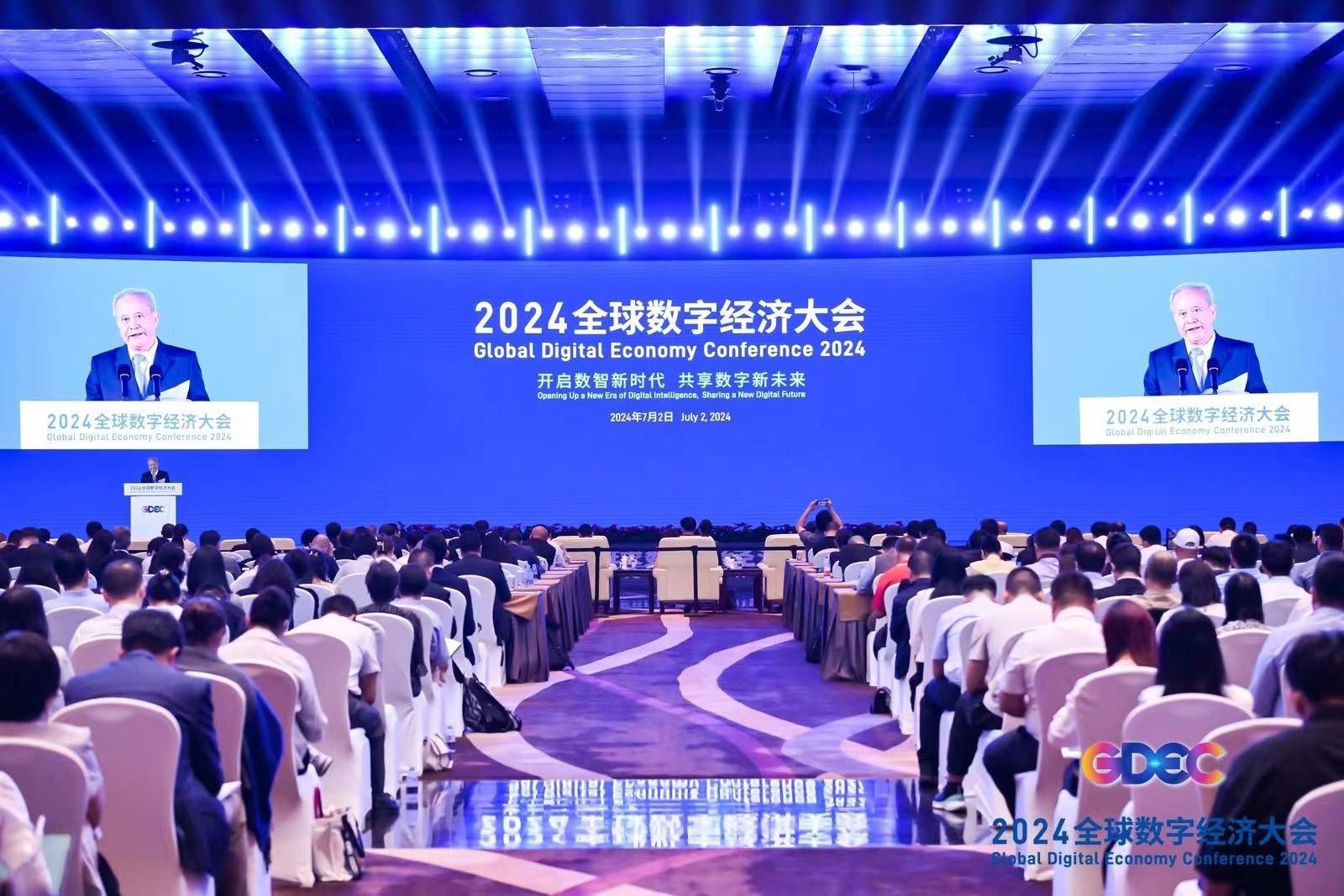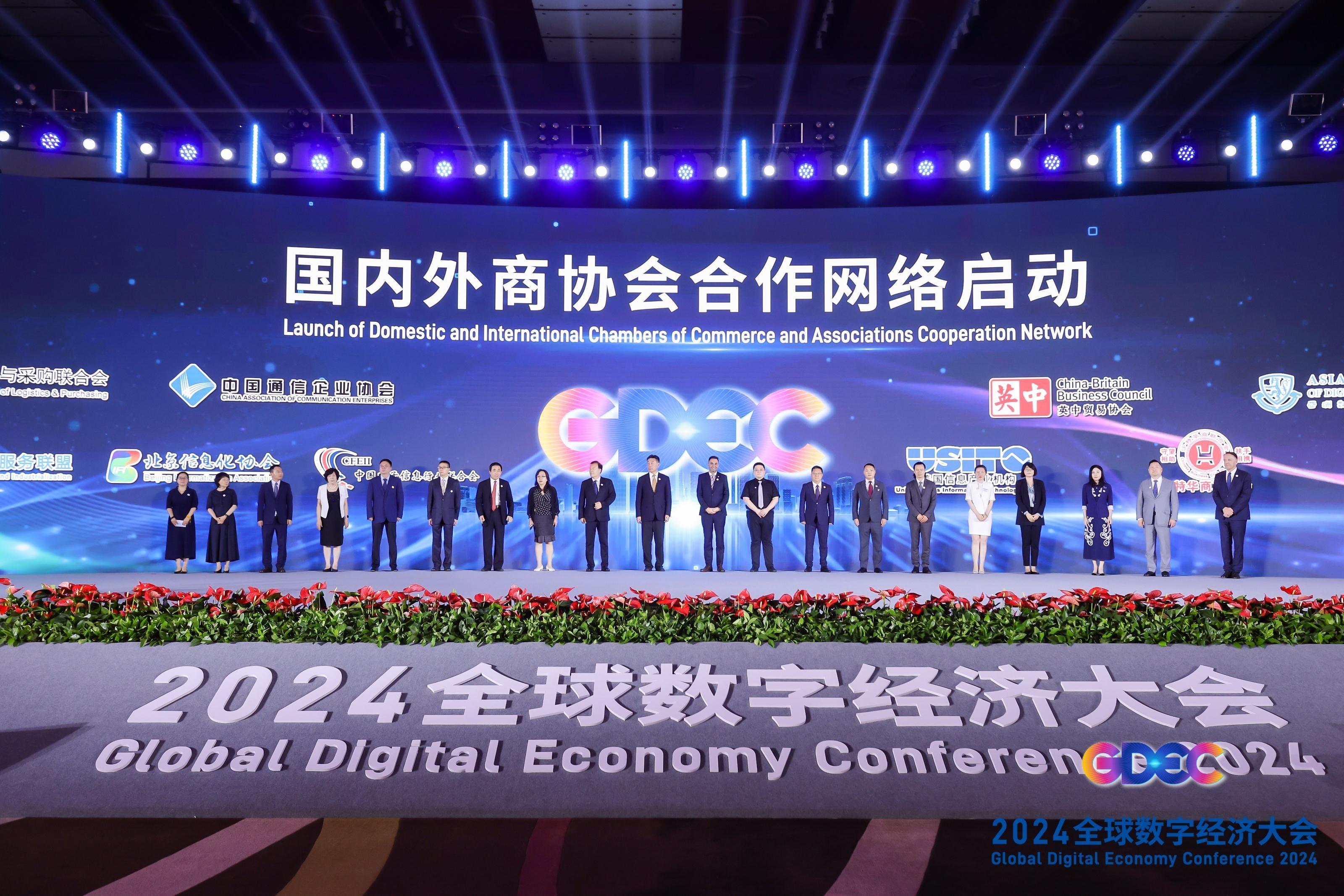
 0 Comment(s)
0 Comment(s) Print
Print E-mail China.org.cn, July 4, 2024
E-mail China.org.cn, July 4, 2024

On July 2-5, 2024, the Global Digital Economy Conference (GDEC) 2024 is being held in Beijing. As an important part of the conference, the main forum was successfully held on the afternoon of July 2. Jin Wei, a member of the Standing Committee of the CPC Beijing Municipal Committee and vice mayor of Beijing Municipal People's Government; Wang Song, deputy director of the Office of the Central Cyberspace Affairs Commission and vice minister of the Cyberspace Administration of China; Zhao Zhiguo, chief engineer of the Ministry of Industry and Information Technology (MIIT), and Wang Qiang, mayor of Lhasa Municipal People's Government, attended the conference and delivered speeches.
Jin Wei, vice mayor of Beijing Municipal People's Government, said in his speech that the digital economy, as the future direction of the world's industrial development, is a key force in changing the pattern of global competition. Under the overall guidance of the country, the Beijing Municipal Party Committee and Municipal Government have incorporated the development of the digital economy into strategic arrangements, focusing on the world's cutting-edge technological innovations and strategic needs. By implementing effective policies and initiatives, Beijing is striving to become a benchmark city for the global digital economy. Jin also gave a detailed introduction of Beijing's achievements in the digital economy, including the improvement of the digital economy policy system, the construction of new infrastructure, the smooth flow of data, the promotion of cutting-edge digital industries, and the expansion of technology application scenarios.
At present, new technologies and applications, such as artificial intelligence, 5G, blockchain, big data, and so on, are constantly emerging. The speed of development and the scope and depth of the influence of the digital economy are unprecedented, and they are becoming key forces driving the development of the global economy. Wang Song, vice minister of the Cyberspace Administration of China, pointed out that in recent years, the Chinese government has made a series of major deployments to boost the digital economy and remarkable achievements in promoting the development of the digital economy have been made. The overall scale of China's digital economy has ranked second in the world for many consecutive years, and the leading and supporting role of the digital economy in economic and social development has become increasingly prominent. It is hoped that cooperation and exchanges can be strengthened to build consensus, gather strength, and make new and greater contributions to the development of the digital economy.
Zhao Zhiguo, chief engineer of the Ministry of Industry and Information Technology, said in his speech that Beijing, as the capital of China, has given birth to and gathered a number of digital enterprises with global influence and has become a highland for the development of the digital economy and an important window for international digital cooperation. He hoped that the participants would take advantage of this conference and forum to strengthen communication, deepen cooperation, share opportunities, create new momentum to promote the development of the digital economy and work together to build a new future for the development of the digital economy.
Over the past three years, the construction of "digital bridges" across the Himalayas has become a firm consensus between Beijing and the capital city of Xizang Autonomous Region, Lhasa. Wang Qiang, mayor of Lhasa Municipal People's Government, said that at present, Lhasa has built a national-level green data center, successfully becoming a national "dual-gigabit demonstration city." Lhasa International Communication Business Bureau has opened a number of transnational businesses, and the national clean energy base has been rapidly built. The added value of Lhasa's digital economy has increased by more than 20% per year on average, accounting for more than 10% of GDP, and the tourism economy, digital economy, and new energy economy are Lhasa's "troika" for cultivating new quality productive forces and promoting high-quality development.
The guests offered insightful perspectives on their respective areas of expertise during the keynote speeches and keynote presentations.

Wang Qinmin, vice chairman of the 12th National Committee of the Chinese People's Political Consultative Conference and director of the National E-Government Expert Committee, said that over the years, China has responded to the World Trade Report and successively achieved significant progress and experience in digital trade, service industry transformation, digital government, disaster response, climate change, and digital-friendliness and inclusiveness. Global cooperation in the digital economy has become a historical necessity, and it will be an important tool to promote the construction of a digital-friendly community with a shared future for mankind.
Hamdan Zakaria Doleh, chairman of China Innovation Centre in UAE, shared the results of China-Arab digital economy cooperation with the theme of "Strengthening Digital Cooperation between Dubai and Beijing." He hoped that the China Innovation Centre in UAE could become a partner of Beijing and better serve Chinese enterprises going abroad, especially in the Middle East.
In his speech titled "Supply Chain Digitization for a Circular Economy," Marcus Stablein, global senior vice president of NXP Semiconductors, emphasized the important role of digitization in driving supply chain transformation and realizing a circular economy.
Huo Xuewen, chairman of the Bank of Beijing, delivered a speech titled "Opening a New Chapter of High-Quality Development of 'Digital Bank of Beijing.'" He emphasized the need for deep integration of scientific and technological innovation and financial services, which is an important way for the banking industry to serve the country's overall situation and strengthen its mission and responsibility.
In his speech, Feng Qiang, Party secretary and vice chairman of BOE Technology Group, discussed how the digital economy will become a new engine for future development from the perspective of "Internet of Things on Screens, Digital Intelligence and Empowerment." He emphasized the role of the semiconductor display and the information and communication technology (ICT) industry in promoting the development of the digital economy in a mutually reinforcing way.
In his speech titled "AI-Driven Security, Protecting the Future of Global Digitalization," Qi Xiangdong, a member of the National Committee of the Chinese People's Political Consultative Conference, vice chairman of the All-China Federation of Industry and Commerce and chairman of QAX Technology Group, emphasized that in the new era of digital intelligence, cybersecurity is facing unprecedented challenges, and proposed AI technology as a new solution to address these challenges.

At the main forum, the 2024 Global Digital Economy White Paper, released by Yu Xiaohui, president of China Academy of Information and Communications Technology (CAICT), is the fourth edition of the key scientific research launched at the conference, which has become a wind vane for the development of the world's digital economy. The white paper comprehensively presents the development trends and current situation of the digital economy of China, the United States, Germany, and other countries and provides an in-depth interpretation of key development areas such as global artificial intelligence, data elements, digital transformation, and digital infrastructure.
The successful convening of this main forum not only provides a platform for experts, scholars, and entrepreneurs in the field of the global digital economy to communicate and cooperate but also injects new impetus to promote the prosperity and development of the global digital economy. According to the organizing committee, in the next few days, the conference will also focus on the cutting-edge technologies and applications of the digital economy and hold a series of thematic forums and special activities to show the public the latest achievements and development trends in the field of the digital economy, as well as building a broader stage for innovation, development, cooperation, and exchanges in the global digital economy.